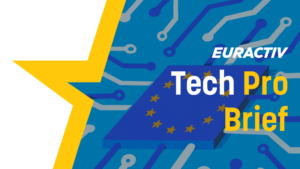Meta’s Inaugural LlamaCon Highlights the Company’s Ongoing Struggle to Keep Up

Key Highlights from Meta’s LlamaCon Keynote
Meta recently hosted its inaugural AI developers conference, LlamaCon, where expectations ran high for the release of new models like Llama 4’s reasoning framework and the much-anticipated Behemoth teacher model. However, attendees were left without these significant updates. Instead, the event showcased announcements aimed at positioning Meta more competitively in the rapidly evolving generative AI landscape.
Meta’s Approach to AI
Open-Source Focus
In the race to create AI capable of executing complex tasks efficiently, Meta has committed to an open-source strategy. This approach not only allows developers to understand better how models are constructed and trained but has also led to considerable engagement with Meta’s Llama models. As of now, the company reports an impressive 1.2 billion downloads of Llama models. These statistics illustrate Meta’s firm standing in the AI space, even if it occasionally lags behind its competitors.
Meta AI App Launch
One of the noteworthy announcements from LlamaCon was the transformation of the Meta View smart glasses application into a dedicated Meta AI app. This new app includes a voice-enabled chatbot and a unique “social discover feed.” Unlike typical social media feeds where you follow friends, this feed showcases interactions from random users with Meta AI. The app is currently available for download, and users may need to search for “Meta View” to locate it since “Meta AI” may not yield results right away.
The choice to develop a standalone app indicates Meta’s strategy to draw users into its ecosystem, potentially paving the way for further integration with future hardware products, like its smart glasses.
Overview of Llama 4 Models
Current Status of Llama Models
Meta’s LlamaCon did not introduce any groundbreaking models but reiterated information about two existing models: Scout and Maverick. Scout is designed to run on a single Nvidia H100 GPU, with a context window of 10 million tokens, making it suitable for lightweight applications. On the other hand, Maverick, which boasts more powerful capabilities, has raised some questions regarding its benchmarking results and the integrity of its performance data.
In the past, there was confusion surrounding the performance metrics of Maverick. While it was initially reported that it surpassed OpenAI’s GPT-4o, it was later clarified that the tested version of Maverick was optimized for conversational tasks and not the version available to users.
AI Training Policies
Concerning privacy, Meta has made some changes in its AI policy, particularly affecting European users who may not have the option to opt out of data training. Information shared with Meta platforms is utilized to enhance their AI models, which prompts questions about user privacy, especially with the evolving regulatory environment around AI and data use.
Launch of Meta’s Llama API Platform
Another significant development was the announcement of the Llama API, aimed at developers interested in building applications using Meta AI. This platform is set to allow early access to the Llama 4 models for developers, emphasizing speed, usability, and customization. Notably, when utilizing the API, Meta will not train on the data submitted by users, bolstering the privacy needed for business or enterprise applications.
Future Prospects for Meta’s AI
While the announcements made during LlamaCon help Meta keep pace with industry competitors, they do not propel the company into a leading position. Key models like Behemoth and the reasoning model for Llama 4 are still awaited, raising concerns about Meta’s future strategies.
The launch of the Meta AI app might level the playing field, but it remains a question whether it will be sufficient to maintain competitive strength against established players such as OpenAI and Google. The potential of the user-generated content within the app presents an intriguing possibility for engagement and innovation, but it is yet to be seen how effectively Meta will harness this opportunity.
For anyone following the progression in AI technology, staying updated with Meta’s approach, particularly how its AI evolves with the current landscape, is critical. As this space continues to develop, each new announcement will bring new insights into how Meta positions itself in the broader AI narrative.






